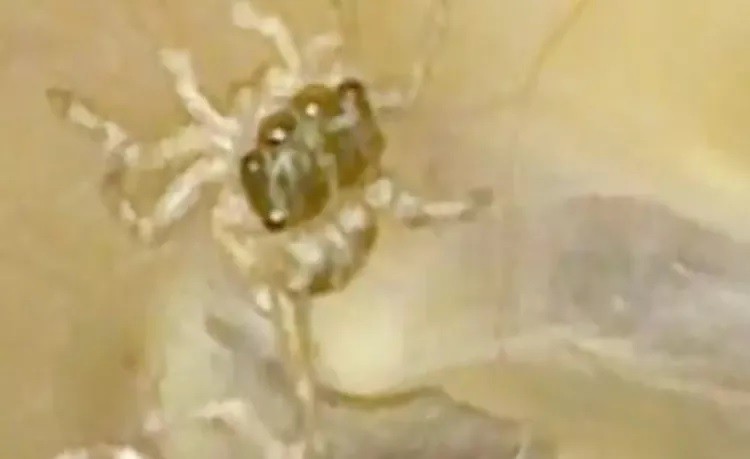28/10/2023
28/10/2023

WASHINGTON, Oct 28, (Agencies): It might seem like a spine-chilling Halloween story, but in Taiwan, a peculiar and unsettling incident occurred. A small spider found its way into the ear of a 64-year-old woman, and when medical professionals examined her, they made a shocking discovery - not only was the spider alive, but it had shed its exoskeleton within her ear canal.
The woman's ordeal began when she awoke to the eerie sensation of something moving inside her left ear, as detailed in a case study published in the New England Journal of Medicine. Spiders typically molt or shed their exoskeletons as they grow, and in this case, it meant the spider had grown larger after entering her ear.
Over the subsequent four days, the woman endured a relentless symphony of "incessant beating, clicking, and rustling sounds," but she didn't seek medical assistance until the persistent noise began to affect her sleep.
When medical professionals examined her, they were astounded to find a live spider navigating the external auditory canal, which connects the outer ear to the eardrum. Remarkably, the spider's movements hadn't punctured her eardrum.
Using a suction cannula, the medical team removed both the live spider and its discarded exoskeleton. The result was immediate relief for the patient, as the disturbing sounds ceased, and she was no longer aware of the spider's presence.
While this incident may sound like an alarming anomaly, it's not the first time doctors have encountered creatures invading ears. In 2019, a woman in Kansas City discovered a venomous brown recluse spider in her ear, and just this past May, an Arkansas family found ticks had infested their toddler's ear.
However, there's no need to panic and start sleeping with earplugs as a precaution. Dr. Stacey Ishman, an otolaryngology instructor at the University of Wisconsin School of Medicine and Public Health, explained that patients with bugs in their ears are often those who have been camping. In most cases, the ear remains unharmed, and any injury to the ear canal is more likely to result from attempts to remove the bug than from the creature itself.
As for the notion of bugs crawling into people's mouths, experts suggest that spiders are generally disinterested in humans. According to Bill Shear, a biology professor and former president of the American Arachnological Society, spiders regard humans as part of the landscape, much like a large rock. In essence, spiders have no intention of bothering us.


